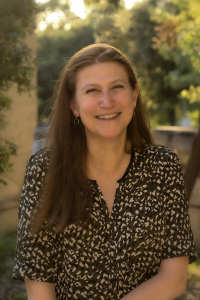Introducing the new Deputy Directors of the Christabel Pankhurst Institute
We are delighted to announce the appointment of four new Deputy Directors at the Christabel Pankhurst Institute. Their diverse expertise and leadership will play a vital role in shaping the Institute’s strategic direction and advancing our mission. We look forward to the insight and impact they will bring as we continue to grow and innovate.
Ian Hall
 Ian Hall is a Professor of mathematical epidemiology and statistics at the University of Manchester.
Ian Hall is a Professor of mathematical epidemiology and statistics at the University of Manchester.
He gained his PhD at the University of Exeter in vortex dynamics, and subsequently worked for 15 years at Public Health England (now UKHSA) where he led a mathematical modelling team planning for emergency responses to emerging infectious disease outbreaks. This included developing inferential tools to infer infection hazard area from early cases and planning for outbreaks such as smallpox and pandemic influenza.
He is a member of the Department of Health’s scientific pandemic influenza modelling subgroup (SPI-M) and during COVID-19 pandemic was academic chair of the SAGE Social Care subgroup. He was awarded an OBE in June 2024 for service to public health, epidemiology and social care, particularly during the pandemic.
His research involves understanding disease impacts on vulnerable settings, operational research to support outbreak mitigation strategies and real time modelling during outbreaks to forecast future case numbers. With a career working across academic disciplines, he is looking forward to working across university to translating digital health tools with the Christabel Pankhurst Institute.
Anthony Wilson
 Dr Anthony Wilson is a consultant of anaesthesia and critical care medicine at Manchester University NHS Foundation Trust (MFT).
Dr Anthony Wilson is a consultant of anaesthesia and critical care medicine at Manchester University NHS Foundation Trust (MFT).
He is the Chief Medical Information Officer (Research and Innovation) at MFT where he champions the use of health data and the adoption of innovative technology to improve patient care and outcomes.
His personal research interests focus on the use of wearable vital signs sensors in hospitals and he is the co-lead of MFT’s wearables laboratory.
Julia Handl
 Julia is a Professor of Decision Sciences in Alliance Manchester Business School.
Julia is a Professor of Decision Sciences in Alliance Manchester Business School.
A computer scientist by training, she has worked extensively across disciplines, with previous positions in Manchester’s MIB, Manchester’s Faculty of Life Sciences and the University of Washington’s Department of Biochemistry.
She is a member of the European Laboratory for Learning and Intelligent Systems (ELLIS) and sits on the management board of the new Manchester-Cambridge AI CDT for Decision Making in Complex Systems, as well as Manchester’s Institute for Data Science and AI.
Within the Pankhurst Institute, Julia will help to deliver the Institute’s ambitions around partnerships, translation & interdisciplinarity, and help foster a vibrant, welcoming environment and sense of identity within the Institute.
Sophia Ananiadou
 Sophia Ananiadou is Professor of Computer Science at the University of Manchester.
Sophia Ananiadou is Professor of Computer Science at the University of Manchester.
Her research focuses on Natural Language Processing and Large Language Models for biomedical and clinical applications. Key areas include LLM-based information extraction, summarisation, emotion detection, and interpretability; applications include semantic search, systematic reviews, pathway reconstruction, mental-health prediction, misinformation detection, and risk assessment.
Ananiadou has been active bridging the gap between Biomedicine and NLP, placing the UK in a world leading position in Biomedical NLP research through the creation of the first publicly funded text mining centre in the world, the UK National Centre for Text Mining (NaCTeM) established in 2005.
Ananiadou’s pioneering work for the automated extraction of biomolecular mechanisms (events) from textual data was crucial for the automated curation of biomedical knowledge bases in domains such as neuroscience, chemistry and the automated pathway reconstruction for metabolic and signalling pathways.
Her work on developing interpretable LLMs for mental health, emotion detection and misinformation has been widely cited. She developed the first LLM for mental health (MentaLLaMa). Research on biomedical information extraction (automated recognition of entities, relations and events) has been applied to domains such as systems biology, public health, exposome, chemistry, cancer, for applications such as database curation, semantic search, risk assessment, summarisation, prediction, and the automation of systematic reviews in collaboration with NICE.
She is a Fellow of the European Laboratory for Learning and Intelligent Systems (ELLIS).




0 Comments